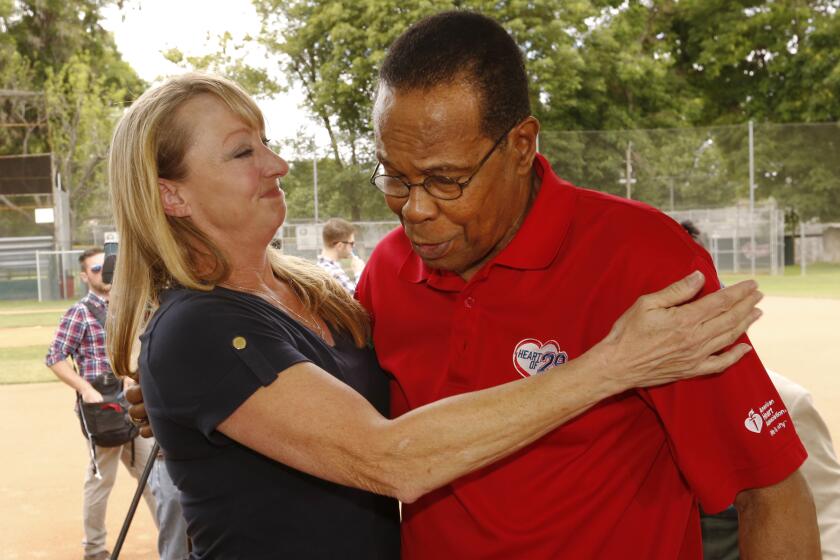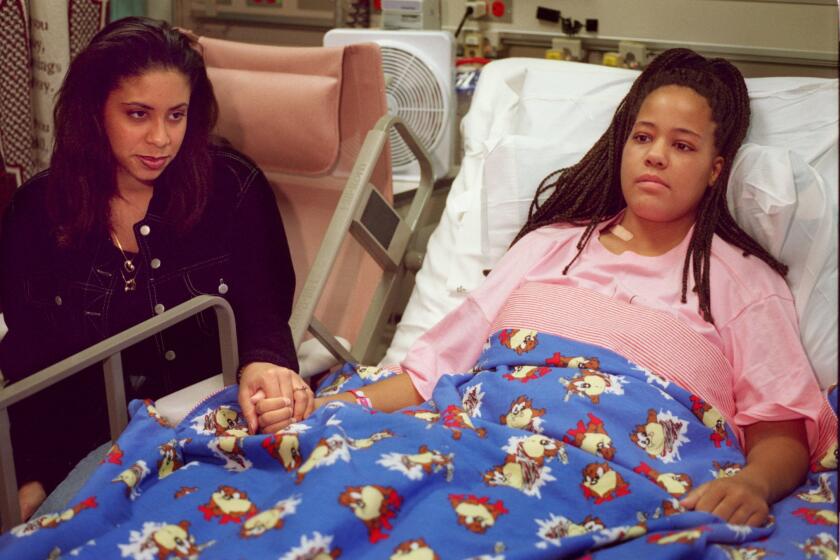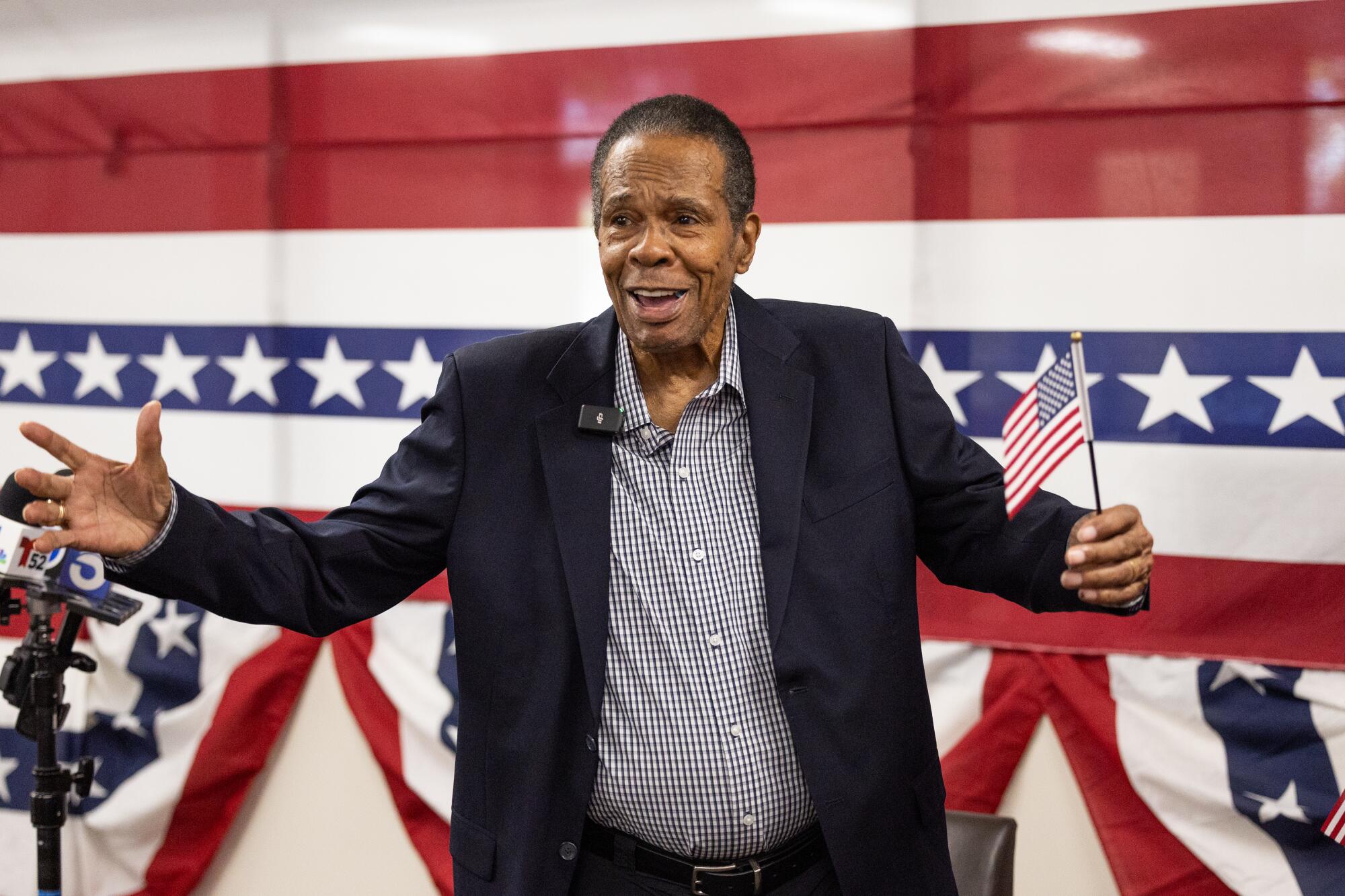
- Share via
Rod Carew raised his right hand and recited the Oath of Allegiance to the United States on Friday, and with that, the Hall-of-Fame first baseman and former Minnesota Twins and Angels star was officially sworn in as a U.S. citizen at age 78, more than six decades after he moved to New York City from his native Panama.
“Hi you guys, I’m an American citizen!” Carew beamed as about 40 family members and friends, including former Angels teammate Bobby Grich, cheered him on in an assembly room at the Federal Building in Santa Ana. “I don’t know what took me so long!”
As a newly minted U.S. citizen, Carew will be able to apply for a U.S. passport. He’ll be able to vote. He’ll be able to serve on a jury. He’ll be able to run for public office.
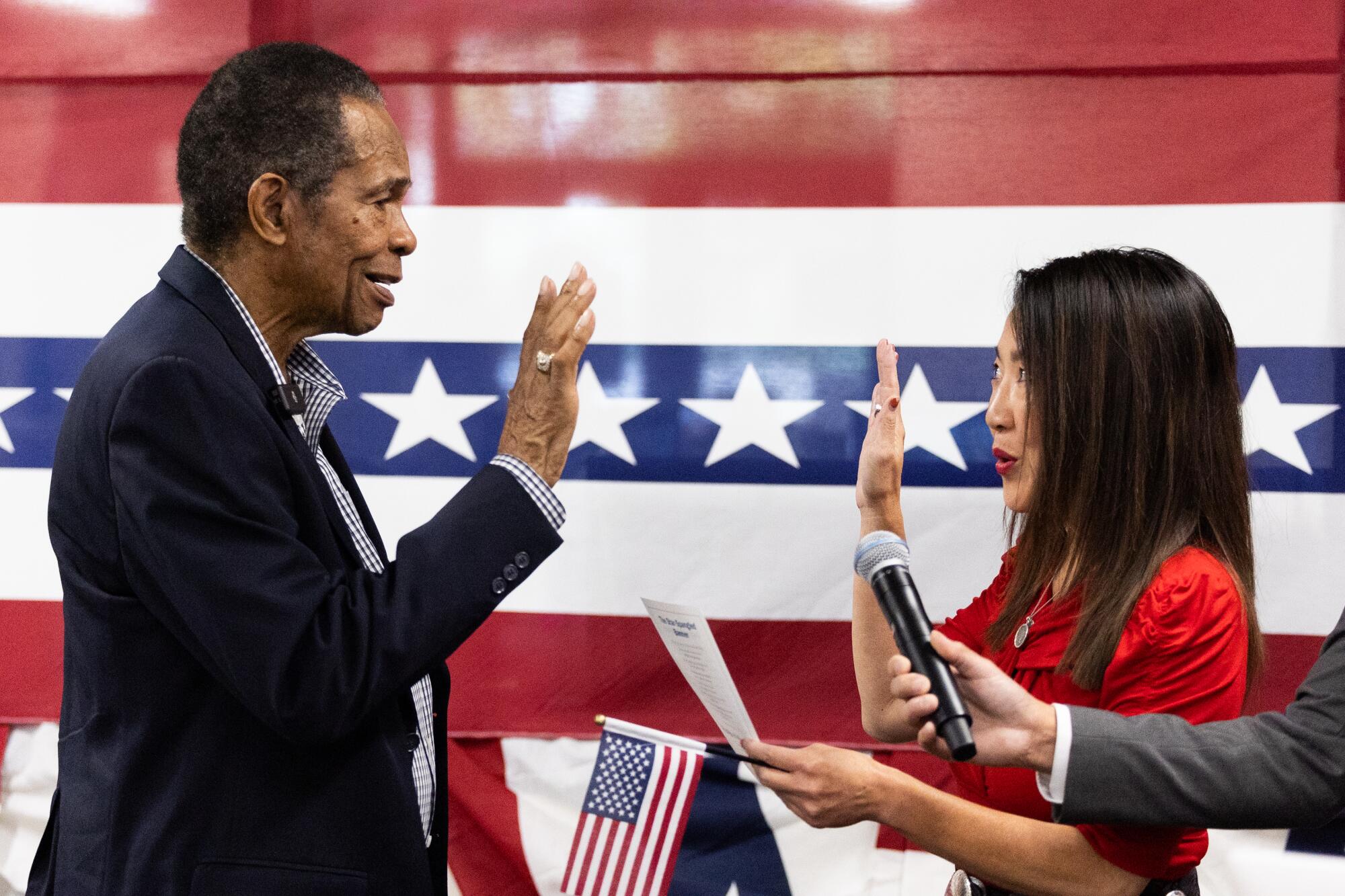
Carew served a six-year stint in the Marine Corps Reserve in the 1960s, and as part of his Oath of Allegiance, he agreed to “bear arms on behalf of the U.S. when required by law,” though at his age, and having endured heart-and-kidney transplant surgery in 2016 and knee-replacement surgery in May, that probably won’t be necessary.
But Carew, who won the American League rookie of theyear award in 1967 and the American League most valuable player award in 1977, sounded ready to do just about anything his adopted nation asks of him.
“I will support the U.S. any way I can, because this is my home, and it’s one of the greatest countries in the world,” Carew said. “I’ve been waiting for this day for a long time. I want to be a part of the great things this country has given us, so any way I can help, I’m gonna help.”
Carew has lived in the U.S. since he moved to the Washington Heights neighborhood of Manhattan with his mother, Olga, when he was 14. He always intended to apply for citizenship, but baseball and life happened, the former rather quickly, and as the years and decades passed, he never got around to it.
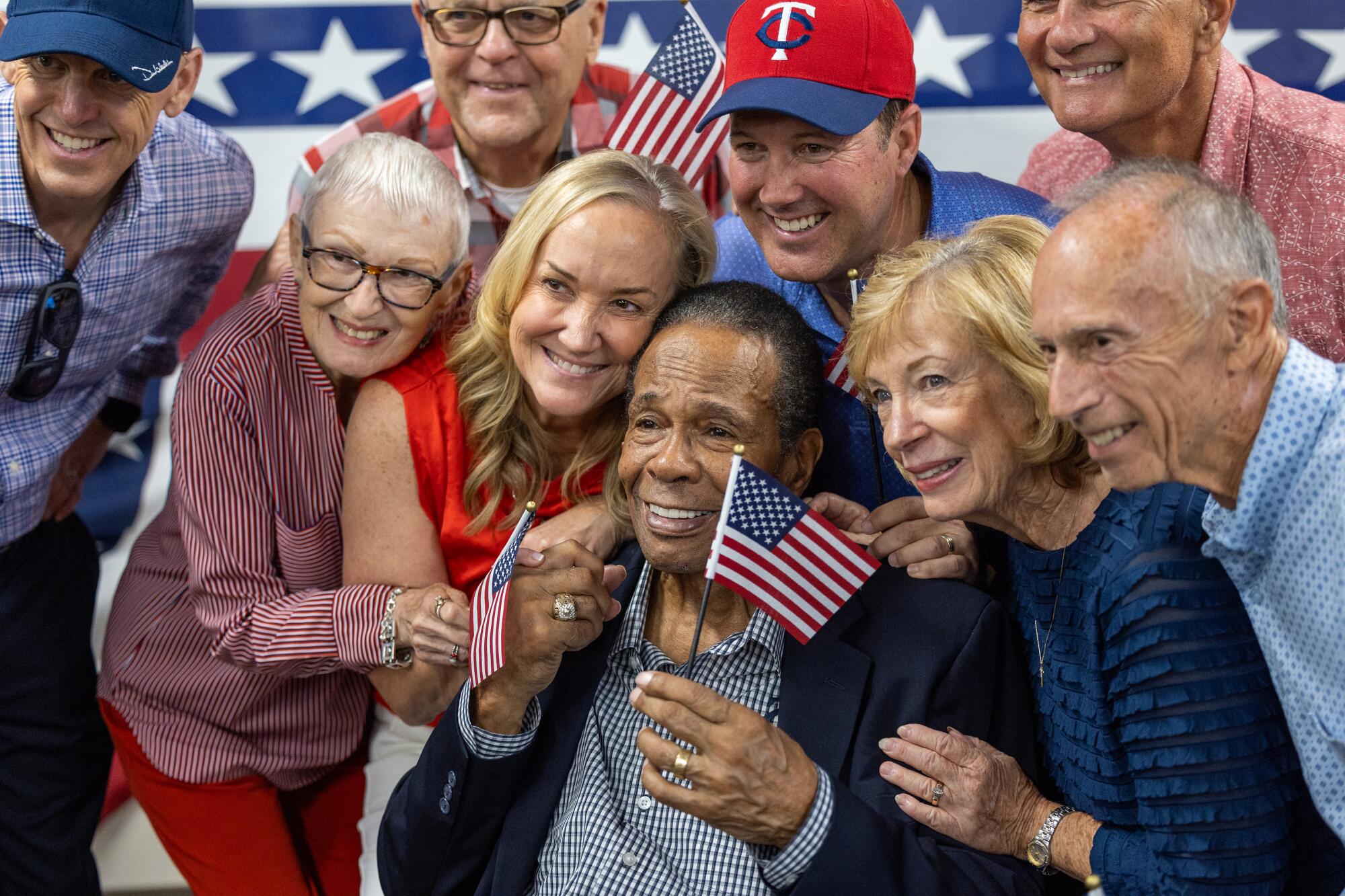
“He would talk about it, then not talk about it, talk about it, then not talk about it,” said Rhonda Carew, Rod’s wife of 24 years. “He was not focused on it.”
Carew signed with the Twins the day after he graduated from high school in 1964, and after three minor league seasons, he launched a wildly successful 19-year big-league career in which he had a .328 average, racked up 3,053 hits and led the Angels to AL West titles in 1979 and 1982.
He was inducted into baseball’s Hall of Fame in 1991. He spent eight years (1992 to 1999) as the Angels hitting coach and has been a Twins special assistant since 2013.
Along the way, Carew, shy and often reclusive with the media as a player, became the face of a national campaign to find a bone marrow transplant for his youngest daughter, Michelle, who died of leukemia at the age of 18 in 1996.
Mary Reuland leaned over the hospital bed and nestled her head on the chest of Konrad Reuland, the oldest of her three football-playing boys, a 6-foot-6, 270-pound NFL tight end who had been in a coma for almost two weeks.
Carew suffered a massive heart attack in September 2015 and underwent a life-saving heart-and-kidney transplant the following year, a story that garnered national attention when the Carews learned that the organ donor, former NFL tight end Konrad Reuland, was a middle-school classmate of Carew’s two adopted children.
“I love this country and wanted to officially be a part of it,” Carew said, “even though so many people were surprised when I told them I wasn’t a citizen.”
Somewhat ironically, it was another medical procedure, his May 21 knee replacement, that provided the impetus for Carew to finally apply for U.S. citizenship.
Carew’s right knee had been bothering him for more than five decades, dating back to a gruesome 1970 collision in Milwaukee’s County Stadium, where Carew suffered torn cartilage and ligaments when Brewers first baseman Mike Hegan rolled into Carew at second base trying to break up a double play.
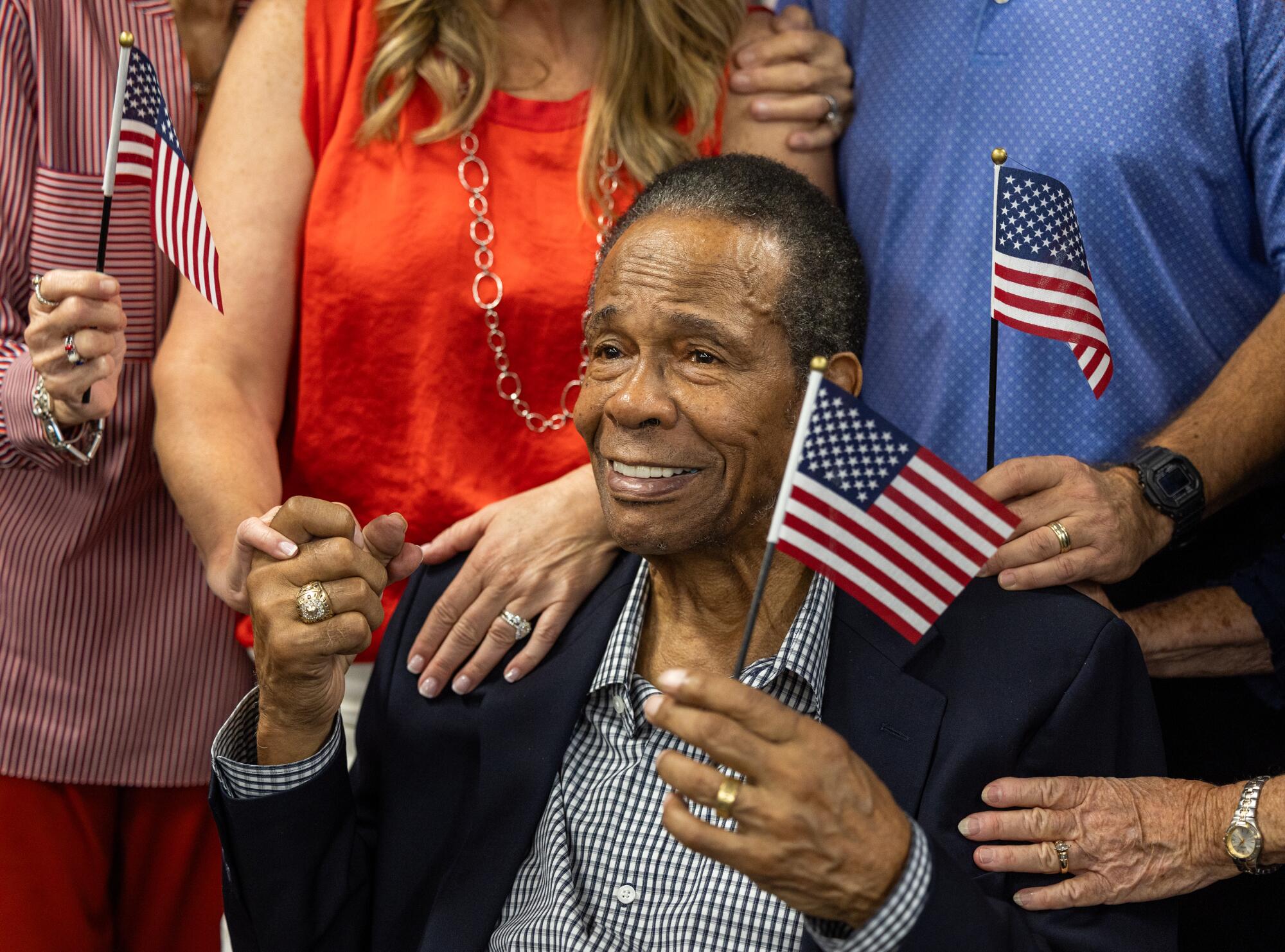
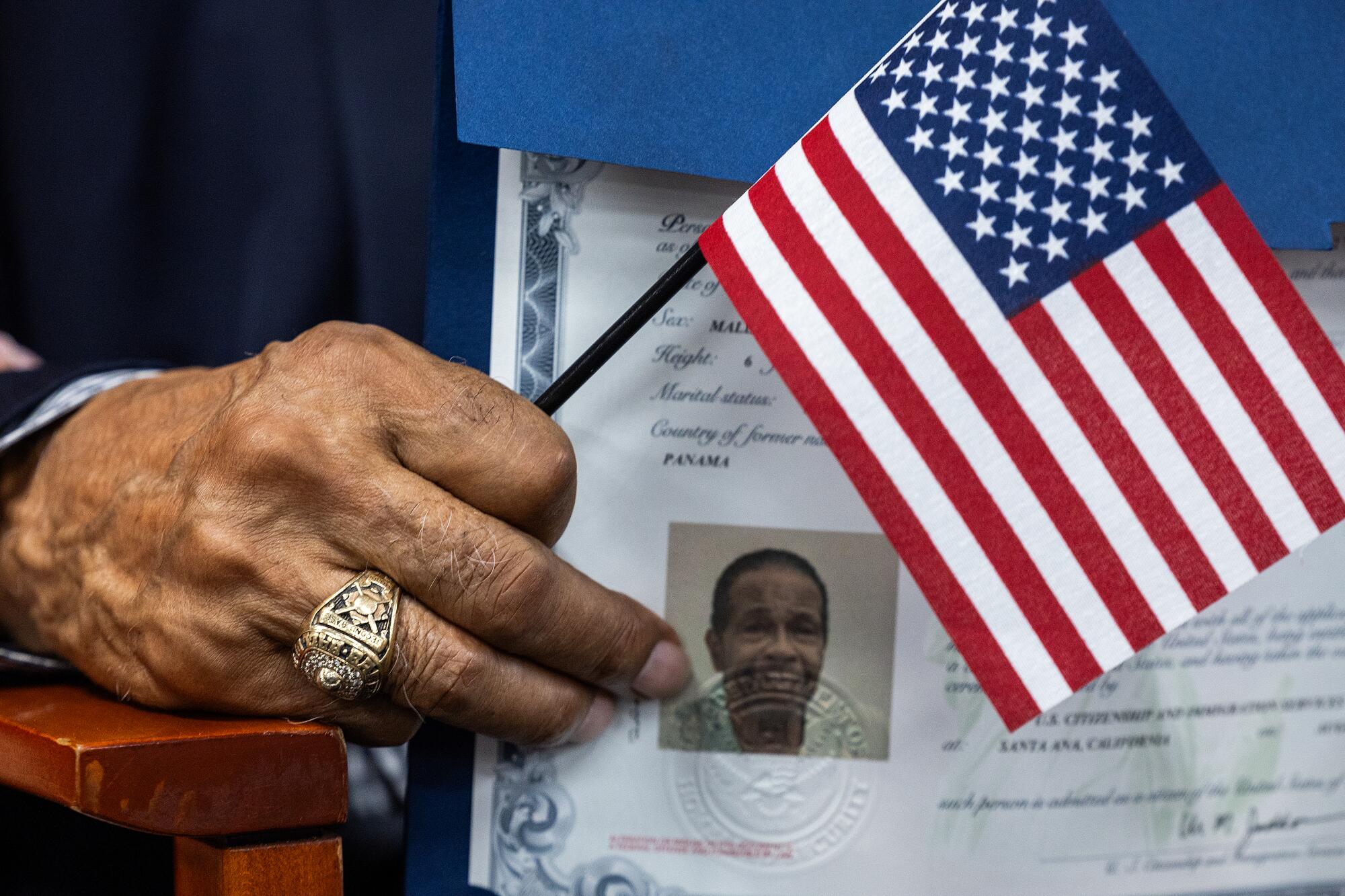
Carew, who was hitting .376 at the time of the June 22 injury, had surgery and missed the rest of the season, except for five pinch-hit at-bats in late September.
“Yeah, I can remember that play vividly,” Carew said. “I had released the ball to first base to complete the double play. He slid kind of high and knocked me off balance and then kind of fell on me, which caused the damage.”
Carew, who is now living in Irvine, is still walking with a cane, but the knee is “feeling a lot better,” he said. With two more months of physical therapy, he is expected to be able to walk normally.
“I’d been thinking about [applying for citizenship] for the longest time, and then I said, ‘You know, honey, it will make it easier for us to travel if I have a U.S. passport, and I don’t have to keep relying on my Panamanian passport,” which has to be renewed every two years,” Carew said.
“So this has been a long time coming. I love this country, I’ve always felt at home here, and I finally decided to commit myself to it and break the barrier. Plus, we haven’t taken a vacation in a long time, so I promised [Rhonda] we will go wherever she wants to go.”
Rod Carew curls up on a family room sofa with the young woman they call “Miracle Child,” 18-year-old Michelle Carew, a leukemia victim and the youngest of Rod and Marilynn Carew’s three daughters.
With the help of former Angels executive and longtime friend Tim Mead, Carew secured an immigration lawyer, filled out the required paperwork, submitted his application and began studying the civics questions for the naturalization test.
“They sent us 20 questions, of which they only ask six,” Rhonda Carew said. “He had the answers down pat.”
But there was one little wrinkle when Carew took the test in Santa Ana on Aug. 5.
“They asked him a question that wasn’t on the list, which was hilarious,” Rhonda said. “They asked him, ‘What’s the capital of California?’ And he was like, ‘I know there’s a basketball team there … wait, let me think.’ He finally came up with the Sacramento Kings, and then he got Sacramento. That was the last question. He was so excited.”
Carew got to share that excitement, pride and joy during Friday’s ceremony, at which he was asked what the first thing he will do now that he’s a U.S. citizen.
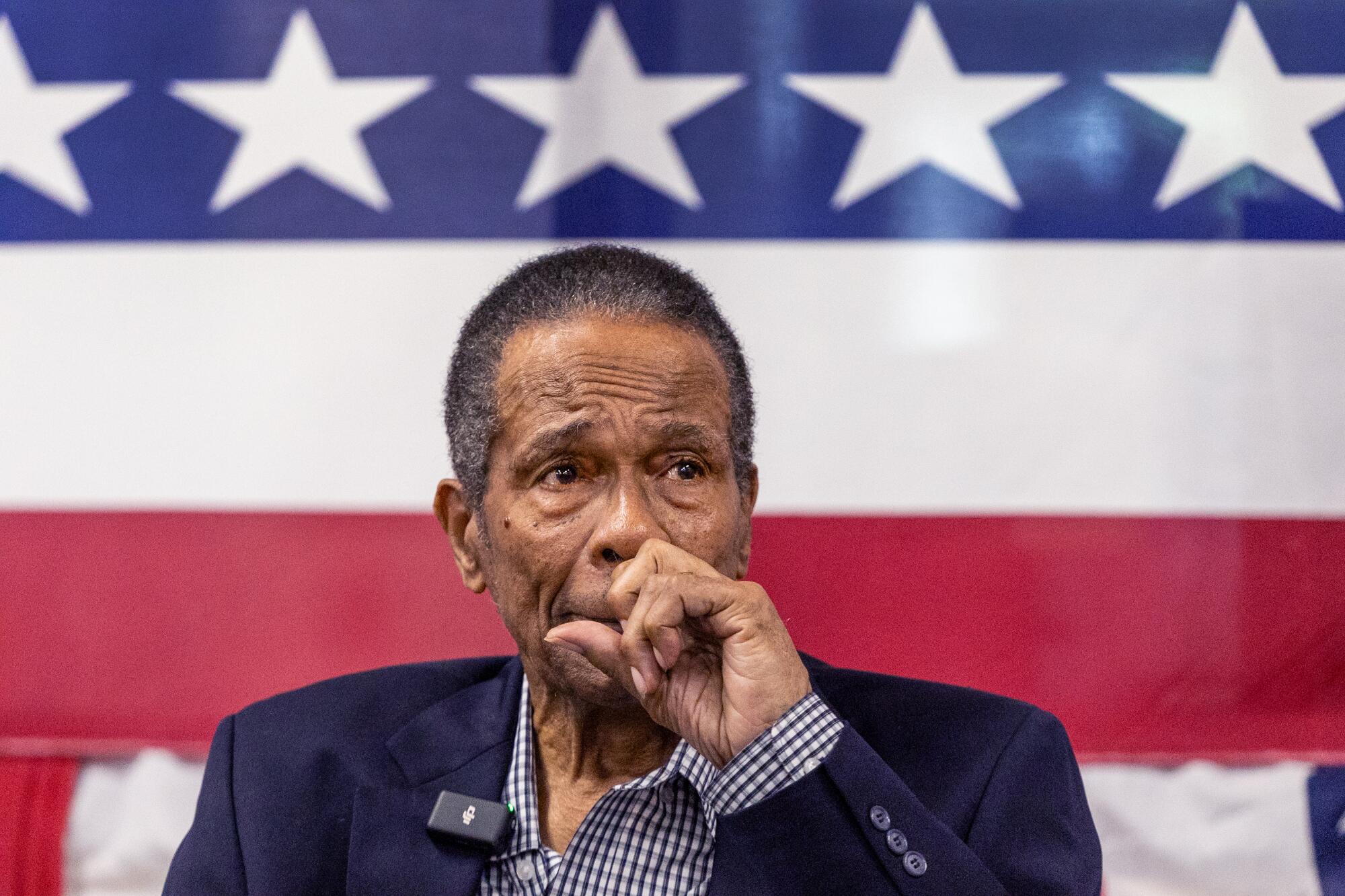
“Take my wife on a trip,” Carew said.
The couple plans to travel to Maui in the fall. The next two stops will likely be Trinidad and Tobago, so Rod can see where his paternal grandparents are from, and Italy, one of Rhonda’s favorite vacation spots.
“I’ve always said the U.S. is home, and this is one way to repay this country for what it has done for me,” Carew said. “Being able to play baseball gave me the kind of life that I had and that I have today. I’m grateful for the way I was treated, the way people looked up to me and the appreciation of the people I played in front of, wherever I went.”
“Thank you for celebrating my No. 1 goal in life, to become a U.S. citizen. I’m a proud American.”
More to Read
Go beyond the scoreboard
Get the latest on L.A.'s teams in the daily Sports Report newsletter.
You may occasionally receive promotional content from the Los Angeles Times.

